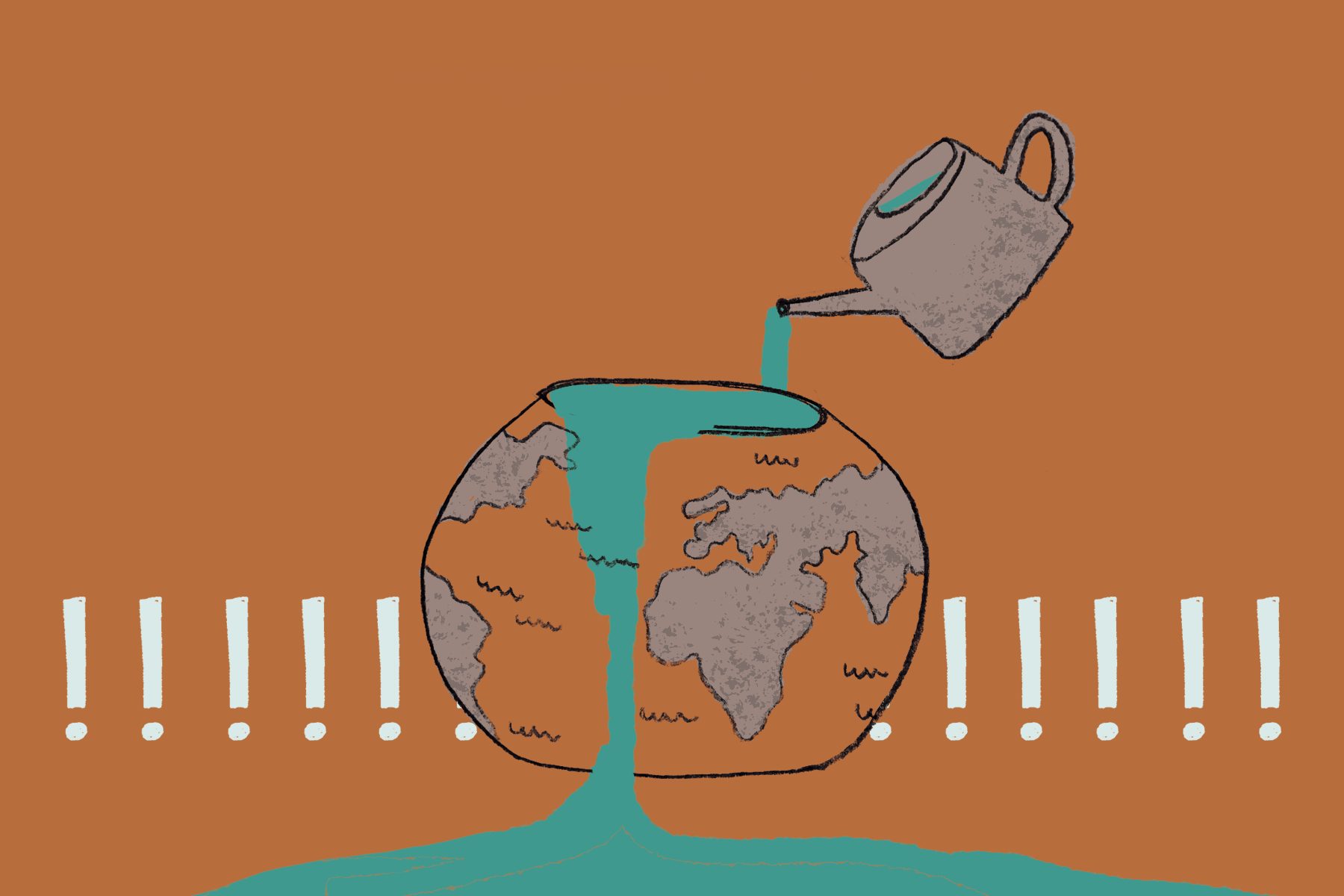Aug. 22: At first glance, the date doesn’t appear to be particularly memorable. However, Aug. 22, 2020, was Earth Overshoot Day, otherwise known as “the date when humanity’s demand for ecological resources and services in a given year exceeds what Earth can regenerate in that year.”
Global Footprint Network is the international nonprofit organization behind Earth Overshoot Day. The Network coined the term in the early 1970s and has since been calculating the date every year. The organization accomplishes this goal by measuring two important indicators: Earth’s bio capacity, or “the amount of ecological resources Earth is able to generate that year,” and our ecological footprint, or “humanity’s demand for that year.” By dividing the supply of Earth’s resources with our demand and multiplying that value by 365, the Network is able to approximate the number of days we have before we overshoot Earth’s resources in a given year.
It’s a bold, but much needed metric, especially at a time when sustainability and climate change have become topics of everyday life. However, even though it has been going on for multiple decades with relatively little recognition, the reason the date received widespread attention this year is because it is three weeks later than 2019’s date, which was late July.
In fact, in the history of Earth Overshoot Day, there has never been as large a change in the year-to-year overshoot date than between 2019 and 2020. For the past 10 years, Earth Overshoot Day fell around the first week of August, and before that the date has constantly been pushed back earlier and earlier — until now.
Global Footprint Network credits this shift to COVID-19 and the various lockdowns that halted economic activity for a large portion of this year. While this date is a cause for celebration and refreshing news amid the historic headlines of this year, it’s not permanent, and it’s not enough. We shouldn’t need a global pandemic to force us to start living more sustainably, but this year’s events do give us an opportunity to reflect on what factors contributed the most to the 2020 overshoot date. Such insights gathered from the Global Footprint Network’s 2020 research report could serve as guidance.
In their report, the Network credits the change to many factors — the largest being the reduction of our carbon footprint, which constitutes 60% of our overall ecological footprint.
Energy savings equals reduced carbon emissions and then some
In calculating the decrease in our carbon footprint, which was 14.5%, the Global Footprint Network used a variety of data from sources like the United Nations and the International Energy Agency. The most interesting insight from this section of the report is not that lockdowns reduce carbon emissions, but rather that “energy and emissions do not follow a direct 1:1 relationship: when energy demand declines, high-polluting energy sources get phased out of the energy mix before renewables do.”
So when you reduce your energy usage, you also encourage the use of renewable energy? That seems like a stretch. The reason why it does seem to happen, as the Network explains, is that fossil fuels have higher operating costs than green energy sources like solar and wind. The accompanying green infrastructure might be more expensive up front, but it pays back in the long term because it requires less to maintain than coal and natural gas.
The International Energy Agency (IEA) has data corroborating this trend: They found that during the first three months of the year, a 3.8% reduction in energy usage — from lockdowns — correlated to a 5% reduction in carbon emissions. Therefore, energy efficiency will lead to an even greater reduction in carbon emissions due to the cost efficiency of green infrastructure. This strategy could be especially pertinent to developed countries like the United States, where the costly barriers to green infrastructure do not have as much an impact as they do on developing countries.
Food waste isn’t just in our kitchens
The report doesn’t specifically say what percentage of our ecological footprint comes from the food and agricultural footprint, but there are some interesting insights in this section nonetheless. Compared to carbon emissions, which decreased due to COVID-19, the Network found the food footprint remained the same.
On the consumer side, eating mainly at home has allowed people to be more efficient with what they buy. By cooking your own food, you can choose your own portions, and you’re more likely to store leftovers, all of which can theoretically lead to less food waste. However, the Global Footprint Network found that efficiencies on the consumer side have been offset by changes on the supply side of the food industry.
The majority of food is sold not to individual households, but to commercial businesses. In response to the pandemic, many restaurants, schools and hospital cafeterias have stopped purchasing food. Unfortunately, that shift hasn’t stopped farmers from producing just as much food as during normal times. A lot of produce that would’ve been sold to commercial buyers is rotting in fields because farmers don’t have an incentive to hire labor to harvest it if they can’t make a profit from it.
Similarly, federal regulations state that milk has to be processed before being distributed, and that is an additional cost that milk farmers aren’t willing to take on if they can’t earn a profit from it. The infamous photo of a dairy farmer letting milk run down the drain exemplifies this situation that has led to more food waste, despite strides made in home kitchens.
Taking action
Even though we can’t control some parts of our ecological footprint, like food production, there are steps that we can take. Global Footprint Network also manages the Ecological Footprint Calculator, which is a great starting point to figure out how many “Earths” are needed to sustain your own lifestyle. It hosts a wealth of actionable steps that can help bring the conversation around Earth Overshoot Day far beyond this year.
Furthermore, decreased carbon emissions were the primary reason for the anomaly that is 2020 Earth Overshoot Day, so it’s something we should prioritize. However, as we change our lifestyles to reduce emissions, we also need to look beyond ourselves and at our governments. Transitioning to cleaner energy and reducing carbon emissions, or implementing a system that incentivizes farmers to donate unsold food, is an important starting step that the pandemic has brought to the spotlight.

















